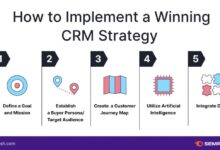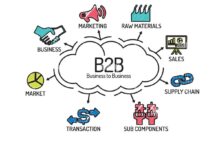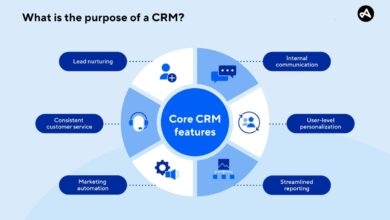B2B Bistro: 7 Powerful Insights to Transform Your Business Dining Experience
Ever wondered how a simple meal can turn into a strategic business advantage? Welcome to the world of b2b bistro—a rising trend redefining how companies network, negotiate, and nourish relationships over food.
What Exactly Is a B2B Bistro?

The term b2b bistro might sound like a trendy buzzword, but it represents a significant shift in how businesses approach hospitality, collaboration, and client engagement. Unlike traditional restaurants or cafés, a b2b bistro is designed specifically to serve corporate clients, offering curated dining experiences that blend convenience, professionalism, and culinary excellence.
Defining the B2B Bistro Model
At its core, a b2b bistro operates on a business-to-business model, where food services are provided not to individual consumers but to other businesses. These can include corporate offices, co-working spaces, event planners, or even HR departments organizing team lunches. The focus is less on walk-in customers and more on long-term contracts, bulk orders, and tailored menus.
- Services often include daily meal deliveries, on-site catering, and private dining events.
- Menus are frequently customizable based on dietary needs, branding preferences, or cultural considerations.
- Operations are optimized for efficiency, scalability, and consistency—key factors for corporate clients.
How It Differs from Traditional Restaurants
While both serve food, the operational DNA of a b2b bistro diverges sharply from that of a consumer-facing restaurant. Traditional eateries prioritize ambiance, customer experience, and foot traffic. In contrast, b2b bistros emphasize logistics, volume management, and integration with corporate workflows.
- Revenue streams are contract-based rather than transactional.
- Marketing focuses on relationship-building with procurement managers, office administrators, and event coordinators.
- Success metrics include client retention, order accuracy, and delivery punctuality—not just customer satisfaction.
“The future of corporate dining isn’t just about feeding employees—it’s about enhancing productivity, culture, and brand image through thoughtful food experiences.” — Hospitality Net
The Rise of the B2B Bistro Industry
In the past decade, the b2b bistro sector has seen explosive growth, fueled by changing workplace dynamics, the rise of hybrid work models, and increasing demand for premium employee benefits. Companies are no longer satisfied with bland cafeteria food or last-minute pizza orders—they want gourmet, healthy, and sustainable options delivered seamlessly.
Market Trends Driving Growth
Several macroeconomic and cultural shifts have paved the way for the b2b bistro boom. According to a Statista report, the global corporate catering market is projected to exceed $150 billion by 2027, with North America and Europe leading adoption.
- Remote and hybrid work models have increased demand for home-delivered corporate meals.
- Employers use food as a tool for employee retention and morale boosting.
- Sustainability concerns have pushed companies toward eco-conscious catering partners.
Technology’s Role in Scaling B2B Bistros
Digital platforms have been a game-changer for the b2b bistro industry. From online ordering systems to AI-driven menu planning, technology enables these businesses to scale without sacrificing quality.
- Cloud kitchens equipped with smart inventory systems reduce waste and improve efficiency.
- Mobile apps allow corporate clients to schedule weekly meals, track deliveries, and provide feedback in real time.
- Integration with HR software (like BambooHR or Workday) allows for automated employee meal allowances and dietary tracking.
Key Benefits of Partnering with a B2B Bistro
For businesses, especially mid-sized and large organizations, partnering with a reliable b2b bistro offers a range of strategic advantages beyond just convenience. It’s not just about food—it’s about optimizing operations, enhancing workplace culture, and projecting a professional image.
Improved Employee Satisfaction and Retention
One of the most tangible benefits of a b2b bistro partnership is its impact on employee well-being. A Gallup study found that employees who feel their organization cares about their well-being are 69% less likely to actively seek a new job.
- Regular access to high-quality meals reduces stress and improves focus.
- Customizable menus accommodate diverse dietary needs (vegan, gluten-free, halal, etc.).
- Team lunches foster informal communication and strengthen workplace bonds.
Cost Efficiency and Budget Control
Contrary to the assumption that gourmet catering is expensive, many companies find that a b2b bistro relationship actually reduces overall food-related costs.
- Bulk purchasing power allows bistros to offer competitive pricing.
- Pre-planned menus minimize last-minute spending on takeout or emergency catering.
- Detailed invoicing and reporting help finance teams track expenses more accurately.
“We saved over 30% on our monthly team lunch budget after switching to a b2b bistro with a fixed weekly menu plan.” — Sarah Lin, Office Manager at TechNova Solutions
How to Choose the Right B2B Bistro for Your Business
Selecting the ideal b2b bistro partner requires careful evaluation. It’s not just about taste—it’s about reliability, scalability, and alignment with your company’s values and operational needs.
Assessing Menu Quality and Flexibility
The menu is the heart of any b2b bistro service. Look for providers that offer more than just sandwiches and salads. A strong partner will provide seasonal menus, international cuisine options, and the ability to customize based on your team’s preferences.
- Ask for sample menus and, if possible, arrange a tasting session.
- Ensure they can accommodate allergies, religious diets, and health-conscious choices.
- Check if they update menus regularly to avoid repetition and maintain excitement.
Evaluating Logistics and Service Reliability
No matter how delicious the food is, poor delivery or inconsistent service can ruin the experience. A top-tier b2b bistro should have a proven track record of punctuality and professionalism.
- Inquire about their delivery windows and whether they offer real-time tracking.
- Ask about backup plans for delays (e.g., weather, traffic, supply chain issues).
- Review client testimonials or case studies, especially from companies in your industry.
B2B Bistro Marketing Strategies That Work
For entrepreneurs looking to launch or grow a b2b bistro, understanding effective marketing strategies is crucial. Unlike B2C restaurants, your audience is decision-makers within organizations—HR managers, office admins, and procurement officers.
Building Trust Through Case Studies and Testimonials
Corporate clients want proof before committing to long-term contracts. Sharing success stories from existing clients can be one of the most persuasive tools in your arsenal.
- Create detailed case studies showing how your service improved another company’s operations.
- Highlight metrics like cost savings, employee satisfaction scores, or reduced absenteeism.
- Use video testimonials from HR directors or team leaders for added credibility.
Leveraging LinkedIn and Professional Networks
Social media platforms like LinkedIn are ideal for reaching B2B decision-makers. A strategic content plan can position your b2b bistro as an industry thought leader.
- Post articles on workplace wellness, nutrition for productivity, and sustainable catering.
- Engage with groups related to HR, office management, and corporate events.
- Run targeted ad campaigns aimed at companies with 50+ employees in urban areas.
“Our LinkedIn outreach campaign generated 47 qualified leads in three months, resulting in six new corporate contracts.” — Mark Reynolds, Founder of Urban Bites B2B Bistro
Operational Challenges in the B2B Bistro Space
While the rewards are significant, running a successful b2b bistro comes with its own set of challenges. From supply chain volatility to client retention, operators must navigate a complex landscape to stay profitable and competitive.
Managing Supply Chain and Ingredient Sourcing
Consistency is king in the b2b bistro world. Clients expect the same quality every day, which means you need reliable suppliers and contingency plans.
- Build relationships with multiple vendors to avoid dependency on a single source.
- Invest in inventory management software to monitor stock levels and expiration dates.
- Consider local sourcing to reduce carbon footprint and support community businesses.
Scaling Without Sacrificing Quality
One of the biggest pitfalls for growing b2b bistros is scaling too quickly and compromising food quality or service standards.
- Start with a manageable number of clients and expand gradually.
- Train kitchen staff rigorously on portion control, plating, and allergen handling.
- Implement a feedback loop with clients to catch issues early and make improvements.
Future Trends Shaping the B2B Bistro Industry
The b2b bistro model is far from static. As workplace culture evolves and technology advances, new trends are emerging that will shape the future of corporate dining.
Personalized Nutrition and AI-Driven Menus
Imagine a b2b bistro that tailors meals based on individual employee health data. With wearable tech and AI, this is becoming a reality.
- Some companies are experimenting with integrating fitness tracker data to suggest energy-boosting or calming meals.
- AI algorithms can analyze past orders to predict preferences and reduce food waste.
- Personalized nutrition plans could become a perk offered by forward-thinking employers.
Sustainability and Zero-Waste Initiatives
Environmental responsibility is no longer optional. Clients are increasingly demanding eco-friendly packaging, compostable utensils, and transparent sourcing practices from their b2b bistro partners.
- Adopt biodegradable containers made from bamboo, sugarcane, or cornstarch.
- Partner with local farms to reduce transportation emissions.
- Implement a food waste tracking system and donate surplus meals to local shelters.
“Sustainability isn’t just good for the planet—it’s a competitive advantage. Our eco-certified b2b bistro saw a 40% increase in client inquiries within six months of launching our green initiative.” — Elena Torres, CEO of GreenPlate B2B
Success Stories: Real-World Examples of B2B Bistros Thriving
Nothing illustrates the potential of the b2b bistro model better than real-world success stories. Let’s look at a few companies that have mastered the art of corporate dining.
UrbanEats: Scaling from Local Kitchen to National Provider
Founded in 2018 in Chicago, UrbanEats started as a small kitchen serving three tech startups. Today, they cater to over 50 companies across five states.
- Key to their success: a proprietary ordering platform that integrates with Slack and Google Calendar.
- They offer a “Menu of the Month” club, keeping employees excited about upcoming meals.
- Transparent pricing and no hidden fees built trust with finance teams.
EliteBite: Premium Catering for Fortune 500 Clients
EliteBite specializes in high-end corporate events and executive dining for Fortune 500 companies.
- They employ Michelin-trained chefs and offer wine pairing consultations.
- Their “Boardroom Gourmet” package includes silent service and elegant plating for high-stakes meetings.
- Strong focus on brand alignment—menus can be branded with company logos and colors.
What is a b2b bistro?
A b2b bistro is a food service business that operates on a business-to-business model, providing meals and catering services to companies rather than individual consumers. These services often include daily meal deliveries, team lunches, and event catering, with a focus on quality, consistency, and corporate integration.
How does a b2b bistro differ from regular catering?
While traditional catering is often event-based and one-off, a b2b bistro typically works under long-term contracts, offering recurring services like weekly lunches or daily office meals. They also integrate more deeply with corporate operations, using technology and customized solutions tailored to a company’s culture and needs.
Can small businesses benefit from a b2b bistro?
Absolutely. Many b2b bistros offer scalable packages suitable for startups and small teams. Even companies with 10–20 employees can benefit from improved team morale, time savings, and professional image enhancement through regular, high-quality meals.
How do b2b bistros handle dietary restrictions?
Reputable b2b bistros prioritize inclusivity by offering diverse menu options, including vegan, vegetarian, gluten-free, dairy-free, halal, and kosher meals. They often allow employees to pre-select their preferences through digital platforms, ensuring everyone gets a suitable meal.
Are b2b bistro services cost-effective?
Yes, especially when compared to the cumulative costs of individual takeout or last-minute catering. With bulk pricing, reduced waste, and better budget forecasting, many companies find b2b bistro partnerships to be a financially smart choice.
The b2b bistro model is more than just a food trend—it’s a strategic business solution that enhances workplace culture, streamlines operations, and strengthens client relationships. As companies continue to prioritize employee well-being and operational efficiency, the demand for professional, reliable, and innovative b2b dining services will only grow. Whether you’re a business looking to improve your office experience or an entrepreneur exploring a lucrative niche, the world of b2b bistros offers powerful opportunities worth exploring.
Further Reading:









